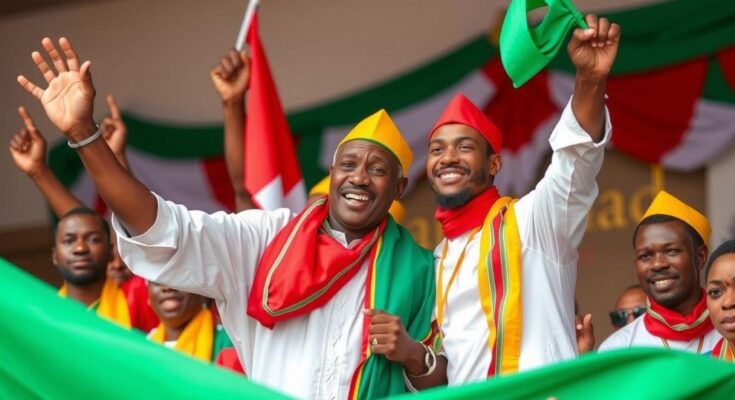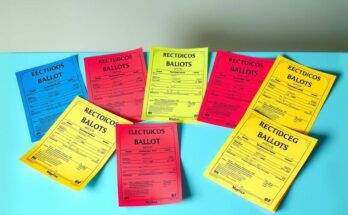Chad’s ruling party, the Patriotic Salvation Movement, achieved a majority in the recent parliamentary election, winning 124 of 188 seats amidst a boycott from major opposition parties. The election, the first in over a decade, has been criticized by opposition leaders as unfair. President Deby views the election as a move towards decentralizing power, although concerns about electoral credibility have been raised.
In a recent parliamentary election in Chad, the ruling Patriotic Salvation Movement party has secured a commanding victory, attaining 124 out of 188 seats. This election, held last month, witnessed a considerable boycott by the primary opposition parties, including the notable Transformers party. Provisional results released by Ahmed Bartchiret, the head of the electoral commission, indicated a voter turnout of 51.5%. This event marked Chad’s first parliamentary election in over a decade, following a political transition initiated by Mahamat Idriss Deby after the death of his predecessor, Idriss Deby Itno.
President Deby characterized the election as a stepping stone towards enhancing the political landscape by decentralizing power, thereby distributing authority to regional and municipal levels. Despite the purported objectives of the election, many opposition groups dismissed it as a “charade,” raising concerns over its fairness. They highlighted parallels with last year’s presidential election, which was similarly criticized for its credibility. Amidst these developments, Chad continues to confront various security challenges, including threats from Boko Haram in the Lake Chad region.
Chad has a tumultuous political history, notably marked by a succession of leaders and government transitions. In 2021, Mahamat Idriss Deby’s ascension as a military ruler followed the death of his father, Idriss Deby Itno, who had presided over the country for three decades. The ruling party’s significant victory in the recent parliamentary election is viewed as a consolidation of power that may affect the democratic transition Chad has aspired to realize. The boycott from major opposition parties raises questions about the legitimacy and inclusivity of the electoral process in the nation.
The ruling party’s victory in Chad’s parliamentary elections is poised to strengthen the current regime, particularly in light of the opposition’s decision to boycott the electoral process. This situation emphasizes the challenges facing democracy in Chad as it seeks greater political inclusivity. The ongoing security threats from militant groups further complicate the political landscape, necessitating attention to both governance and public safety. The final validation of these election outcomes will be critical in determining Chad’s democratic trajectory moving forward.
Original Source: abcnews.go.com




